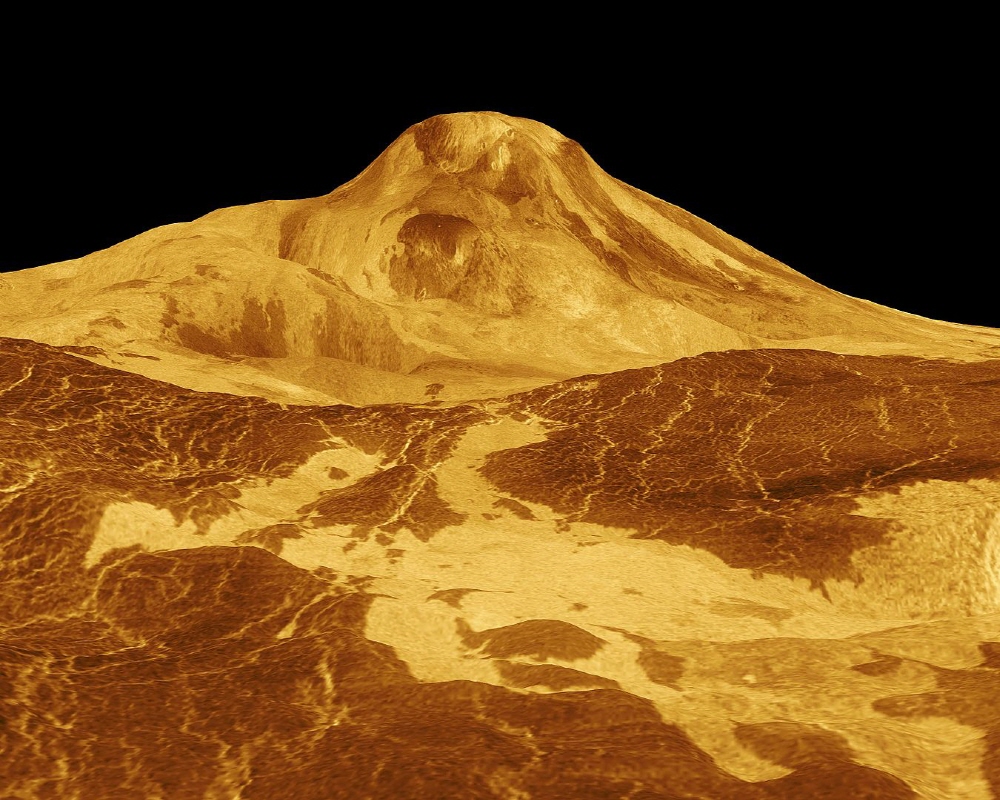
It is said that they found evidence that an active volcano exists on Venus. Earth is the only planet that has been identified as an active volcano. Of course, with the exception of planets, volcanic activity is also active in Jupiter’s moon Io. From 2006 to 2014, Venus Express, the Venus probe orbiting Venus, collected a lot of data, but due to its thick atmosphere, it was difficult to directly observe volcanic activity on the surface of Venus.
However, through a laboratory experiment this time, it was proved that olivine, a type of mineral observed by the probe, was transformed into volcanic lava that occurred a few days ago. Olivine is a mineral known to be abundant in basalt erupting into lava.
The research team who published this research paper had previously checked the traces of volcanoes and lava on the surface of Venus, but couldn’t specify the date when on earth they occurred. Usually scientists are studying what minerals and components are contained on a planet’s surface based on the wavelengths of light emitted or reflected from it. However, in the case of Venus, carbon dioxide in the atmosphere absorbs some of the light, and the light is weaker from the surface than usual. Therefore, computer simulations must be conducted to determine the surface composition of Venus, and the correlation between the observation data of Venus Express and the chemical reactions occurring on the ground after the explosion, such as the interaction of atmospheric gases and minerals, must be verified.
The research team has previously published a paper verifying the properties of olivine on the surface of Venus. It was confirmed that olivine was oxidized in a furnace at 600 degrees Celsius and 900 degrees Celsius, and when the oxidation reaction proceeded one month later, the surface of olivine was covered with hematite and the wavelength of reflected light changed.
This is important data. According to a paper recently published in Science Advances, Venus Express is observing the existence of olivine. Venus is a planet with an average temperature of 400 degrees Celsius. It can be thought that olivine is rapidly oxidizing in Venus’ atmosphere.
Perhaps a few days before Venus Express’ observing activity, volcanic activity blew olivines off the planet’s surface. As with Venus Express, the Venus probe Pioneer also observed a sharp change in the amount of sulfur dioxide in the atmosphere, which increases the possibility of volcanic activity still taking place on Venus.
Of course, this study cannot directly prove Venus’ volcanic activity. However, it is clear that getting to know Earth’s neighbors deeper will be a great motivation for the mission. To do that, of course, you may first need to acquire skills to withstand this harsh planetary environment. Related information can be found here .


















Add comment